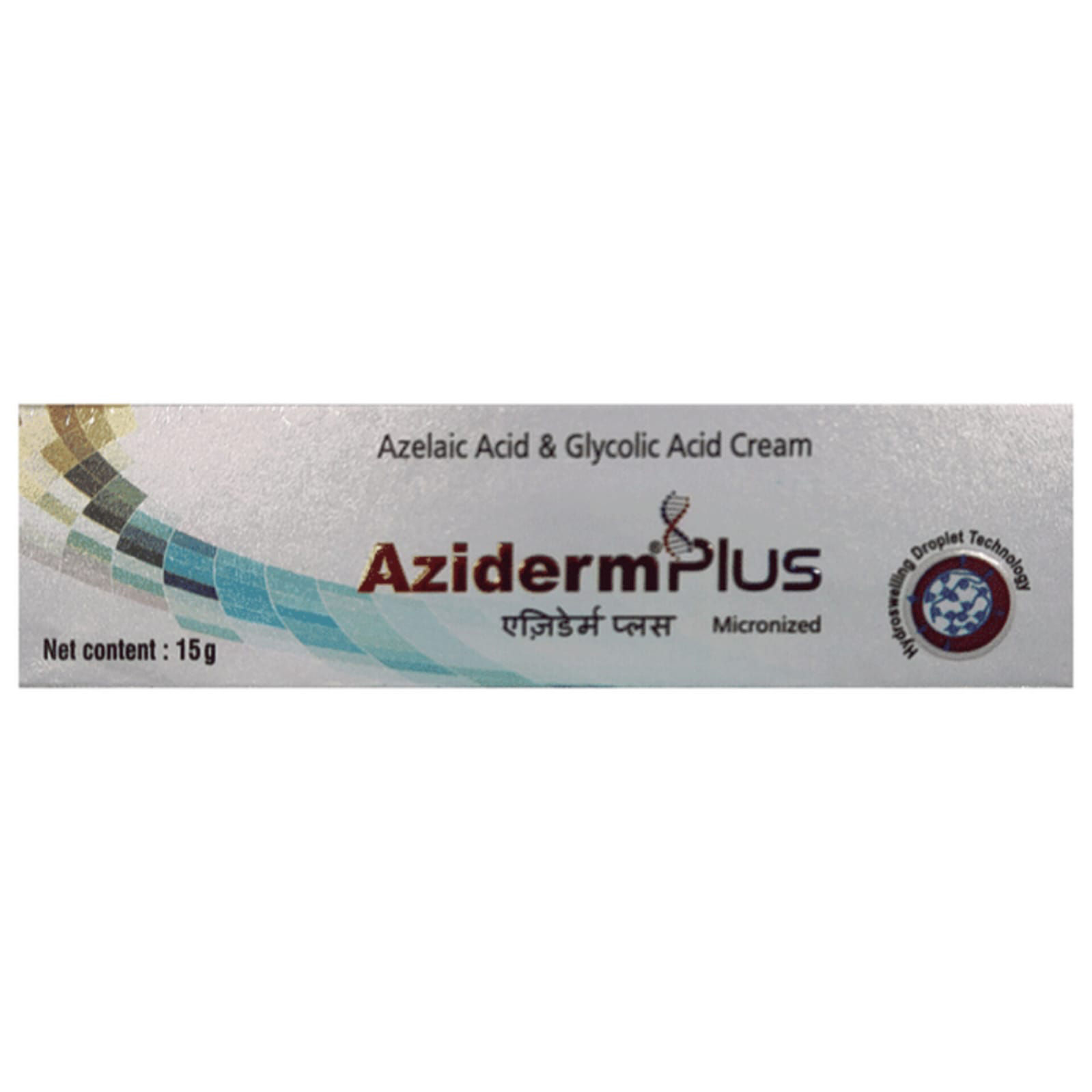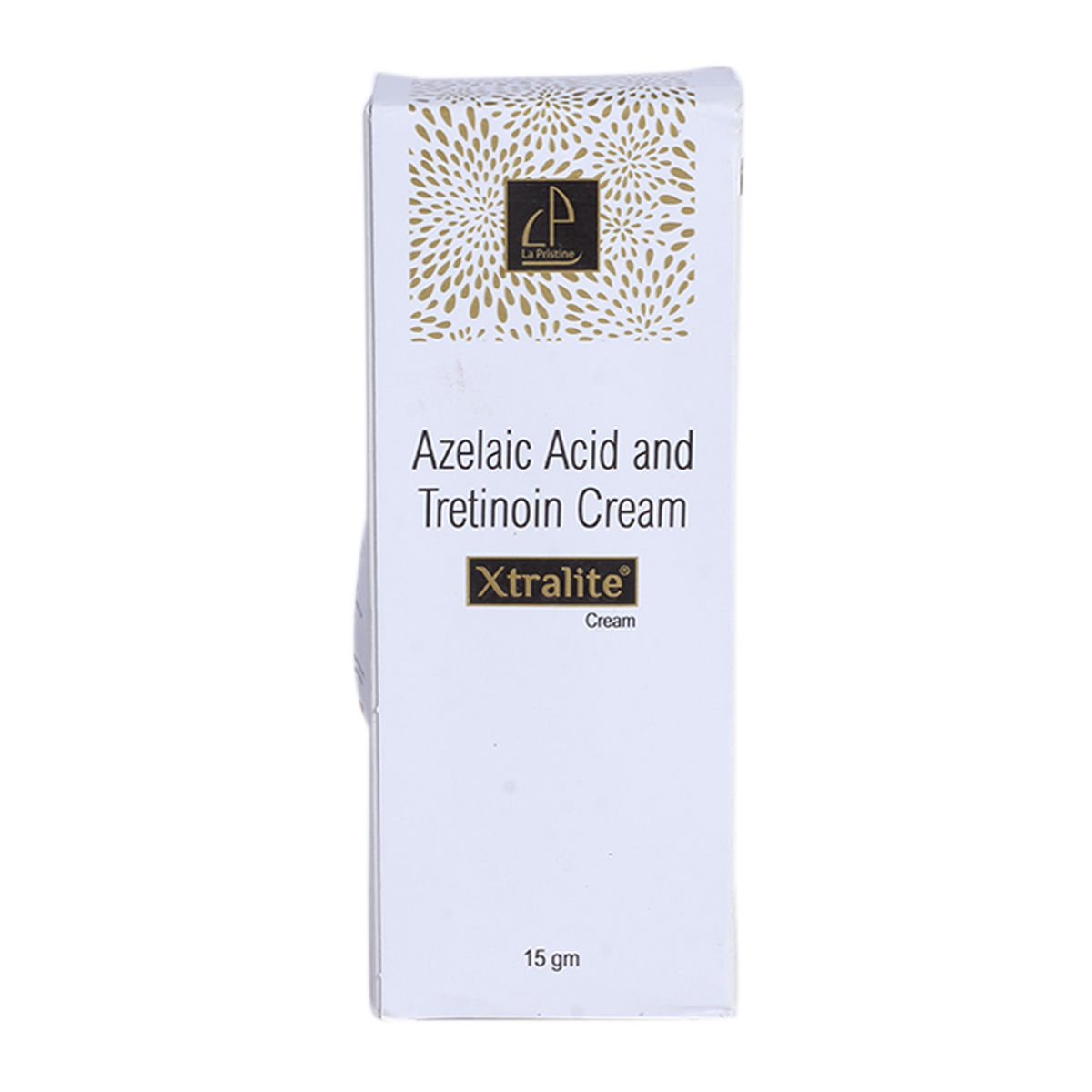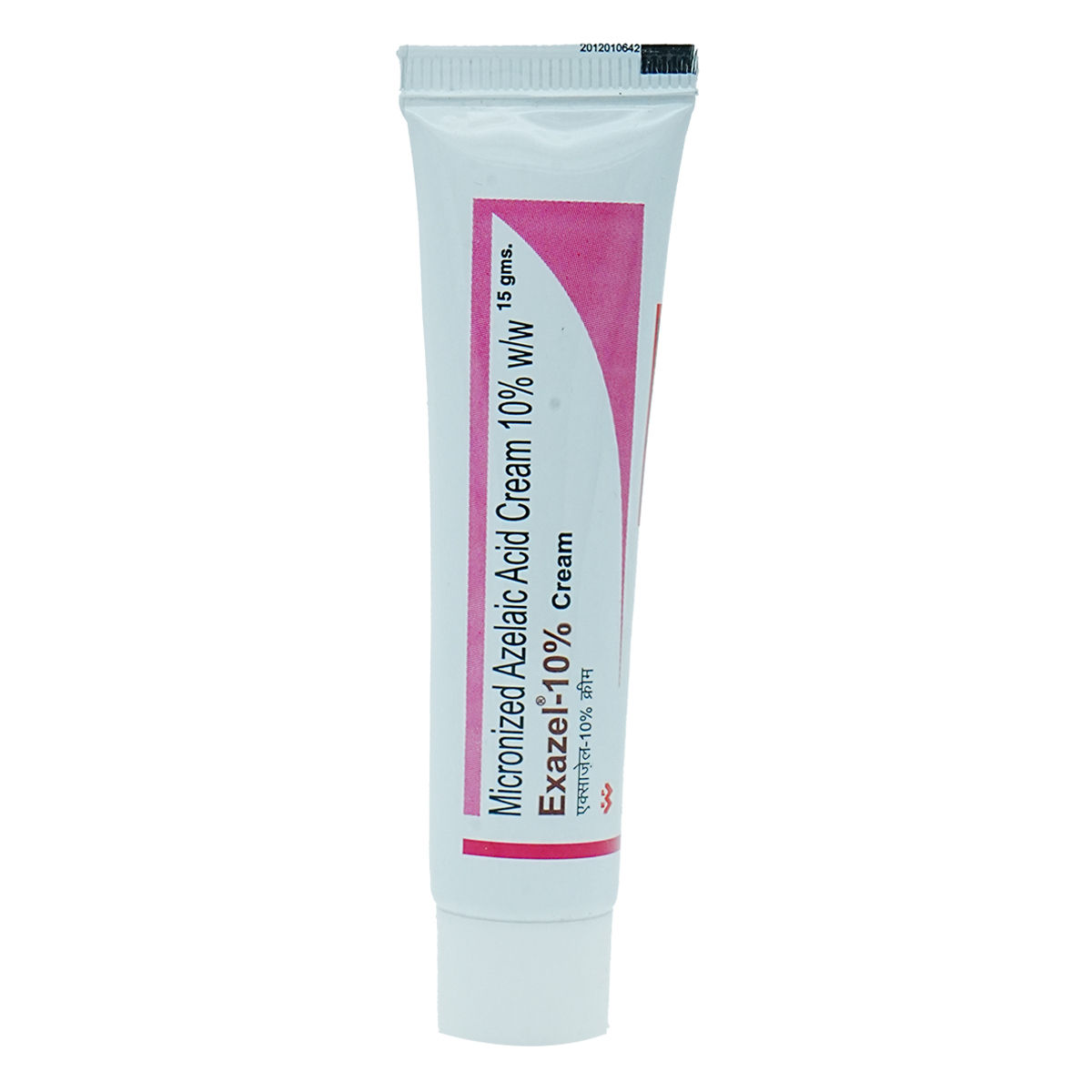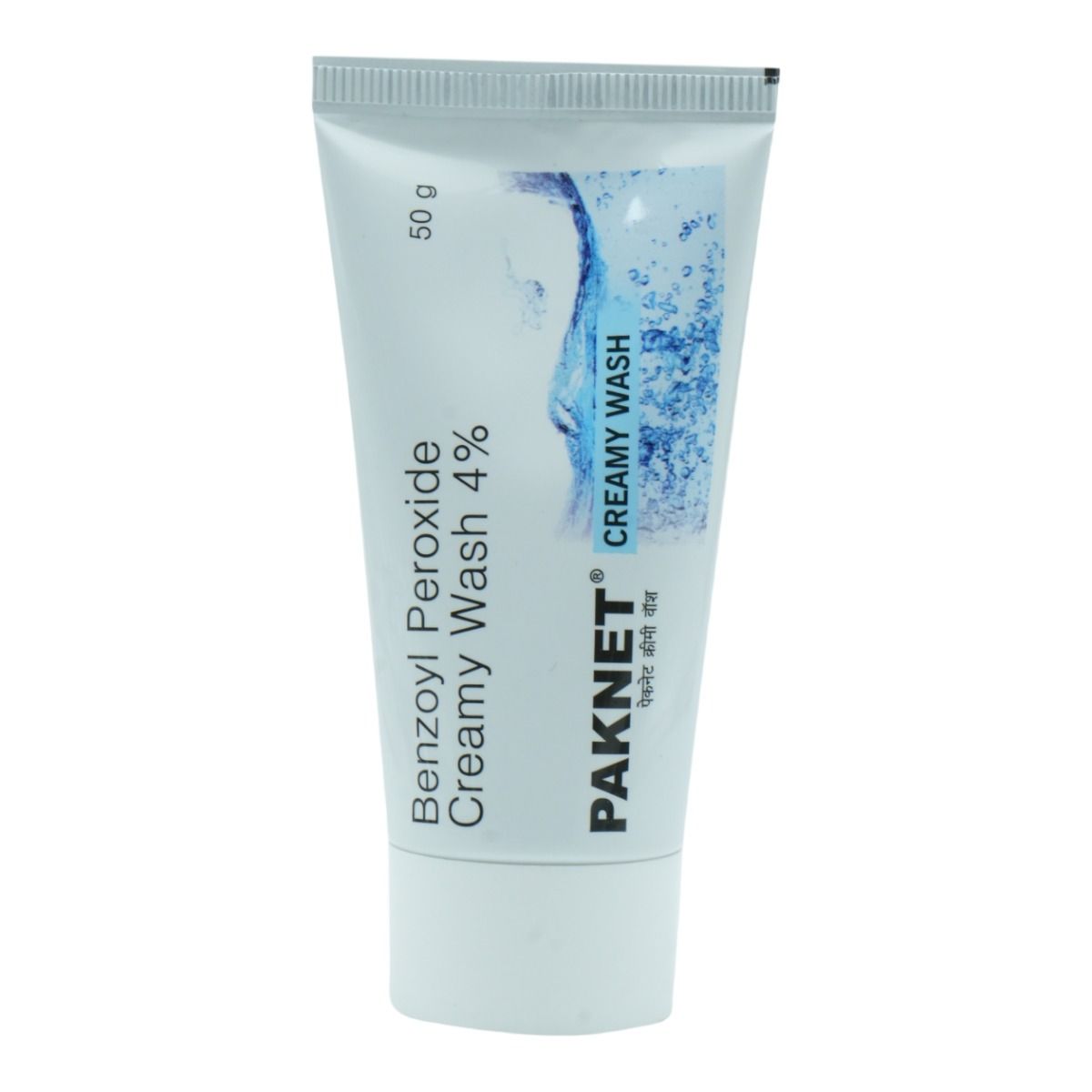- Home
- Health Condition
Cream For Acne
Cream For Acne
- Total Items (63)
 RX
RXAziderm 10% Cream 15 gm
₹318.60
MRP ₹354
10% off
 RX
RXAziderm 20% Cream 15 gm
₹305.10
MRP ₹339
10% off

Aziderm Plus Cream 15 gm
₹313.20
MRP ₹348
10% off
 RX
RXTazret Forte Cream 20 gm
₹521.10
MRP ₹579
10% off
 RX
RXEzanic 20% Gel 15 gm
₹265.50
MRP ₹295
10% off

Papulex Cream 15 gm
₹319.50
MRP ₹355
10% off
 RX
RXEzanic 20% Cream 15 gm
₹256.50
MRP ₹285
10% off
 RX
RXXtralite Cream 15 gm
₹558.90
MRP ₹621
10% off

Persol Forte Cream 30 gm
₹243
MRP ₹270
10% off

Xtralite Cream 20 gm
₹558.90
MRP ₹621
10% off

Acnelude Acne Control Face Cream 30 gm
₹615.10
MRP ₹699
12% off

Akmasq Skin Cream 75 gm
₹243
MRP ₹270
10% off

Exfoliac Acnomega 200 Cream 30 ml
₹1620
MRP ₹1800
10% off
 RX
RXClinred-B Cream 15 gm
₹296.10
MRP ₹329
10% off

Acsal 2% Cream 15 gm
₹270
MRP ₹300
10% off
 RX
RXPinoin-0.025% Cream 20 gm
₹81
MRP ₹90
10% off
 RX
RXExazel 10% Cream 15 gm
₹146.30
MRP ₹162.50
10% off

Persol Forte Cream 20 gm
₹243
MRP ₹270
10% off

Acnelex Pore Refiner Cream 30 ml
₹1053
MRP ₹1170
10% off
 RX
RXRetisphere 0.025% Cream 20 gm
₹94.50
MRP ₹105
10% off
 RX
RXTrebor 0.025%W/W Cream 20Gm
₹141.30
MRP ₹157
10% off
Cream For Acne
Acne is one of the most common skin concerns, affecting people of all ages. It can show up as pimples, blackheads, whiteheads, or inflamed bumps, often caused by factors like hormonal changes, excess oil production, clogged pores, or environmental irritants. Fortunately, the right acne cream can make a big difference in managing breakouts and improving skin clarity.
Whether you're dealing with occasional blemishes or persistent acne, there are many types of acne creams to choose from - including prescription-strength formulas, over-the-counter treatments, and gentle natural options. Each type is designed to target specific causes of acne, reduce inflammation, unclog pores, and promote healing. In this guide, we’ll explore effective acne creams, their benefits, how to use them correctly, and where to buy them online to help you achieve healthier skin.
Types of Acne Creams
Acne creams are formulated to target different causes of acne, such as bacteria, clogged pores, excess oil, and inflammation. Choosing the right type depends on your skin type and severity of acne. Here are the most effective types:
1. Benzoyl Peroxide Creams
- Benzoyl peroxide is a powerful antibacterial agent that kills acne-causing bacteria and helps reduce inflammation.
- Best for: Mild to moderate acne, including inflamed pimples.
- How it works: Penetrates pores to eliminate bacteria and prevent future breakouts.
- Example: Benzoyl peroxide 2.5% or 5% creams.
2. Salicylic Acid Creams
- Salicylic acid is a beta-hydroxy acid (BHA) that exfoliates the skin, unclogs pores, and prevents acne formation.
- Best for: Blackheads and whiteheads.
- How it works: Dissolves dead skin cells and excess oil to keep pores clear.
- Example: Salicylic acid 2% creams.
3. Retinoid-Based Creams
- Retinoids, such as adapalene and tretinoin, increase skin cell turnover, preventing clogged pores and reducing acne scars.
- Best for: Persistent acne, post-acne marks, and skin texture improvement.
- How it works: Stimulates collagen production and prevents pore blockages.
- Example: Adapalene gel, Tretinoin cream.
4. Antibiotic Creams
- Antibiotic creams reduce bacterial growth and help control inflammatory acne.
- Best for: Moderate to severe acne with redness and swelling.
- How it works: Targets acne-causing bacteria and reduces inflammation.
- Example: Clindamycin or erythromycin creams.
5. Natural & Herbal Acne Creams
These creams contain soothing ingredients like tea tree oil, neem, and aloe vera to calm acne-prone skin.
- Best for: Sensitive skin and mild acne.
- How it works: Provides antibacterial and anti-inflammatory benefits without harsh chemicals.
- Example: Neem-based or tea tree oil creams.
Benefits of Using Acne Creams
Acne creams are specifically designed to treat breakouts, calm inflammation, and improve overall skin health. Here’s how they help:
- Reduces Redness and Swelling: Ingredients like benzoyl peroxide, salicylic acid, and niacinamide help ease irritation, making acne less inflamed and noticeable.
- Clears Clogged Pores: Acne creams work by breaking down excess oil, dead skin cells, and impurities, preventing future breakouts.
- Exfoliates and Refreshes Skin: Some formulations include alpha hydroxy acids (AHAs) and beta hydroxy acids (BHAs) to gently shed dead skin cells, promoting a smoother texture.
- Targets Acne-Causing Bacteria: Ingredients such as benzoyl peroxide and tea tree oil eliminate bacteria that trigger breakouts, helping prevent infection.
- Regulates Oil Production: Retinoids and sulfur-based creams help balance sebum levels, reducing excessive oiliness and keeping skin clear.
Minimises Scarring: Acne creams accelerate skin repair to reduce the chances of scarring. Some contain vitamin C or niacinamide, which help fade post-acne marks and even out skin tone.
Dosage & Usage Instructions for Acne Creams
Using acne creams correctly ensures effective treatment while minimising irritation or side effects. Follow these guidelines for safe and optimal application:
1. Cleanse Your Skin First
- Wash your face with a gentle, non-comedogenic cleanser to remove dirt and excess oil.
- Pat your skin dry with a soft towel before applying the cream.
2. Apply a Thin Laye
- Use a small amount of acne cream and gently spread it evenly over the affected area.
- Avoid applying too much, as excessive use may cause dryness or irritation.
3. Follow the Recommended Frequency
- Most acne creams should be applied once or twice daily, depending on the product instructions.
- Retinoid-based creams (e.g., tretinoin, adapalene) are typically used at night, as they can increase sun sensitivity.
4. Avoid Contact with Sensitive Areas
- Do not apply acne cream near the eyes, lips, or open wounds, as it may cause irritation.
- If using benzoyl peroxide, be cautious—it can bleach fabrics like towels and pillowcases.
5. Moisturise & Use Sunscreen
- Some acne creams, especially benzoyl peroxide and retinoids, can cause dryness. Apply a light, oil-free moisturizer after the cream absorbs.
- If using acne treatments during the day, apply broad-spectrum sunscreen (SPF 30 or higher) to protect against sun damage.
6. Be Patient & Consistent
- Acne creams take time to work. Visible improvements may take 2–4 weeks.
- Continue using the cream as directed, even if acne starts to clear, to prevent future breakouts.
Buy Creams for Acne Online at Apollo 24|7
Managing acne is easy and hassle-free with Apollo 24|7. Explore a wide range of genuine, dermatologist-recommended acne creams available online, with fast home delivery and expert guidance when you need it. Whether you're looking for medicated treatments, soothing moisturisers, or targeted spot correctors, you’ll find trusted options to help reduce breakouts and improve your skin. Always follow the usage instructions on the product, and consult a healthcare professional if your symptoms persist or worsen.



